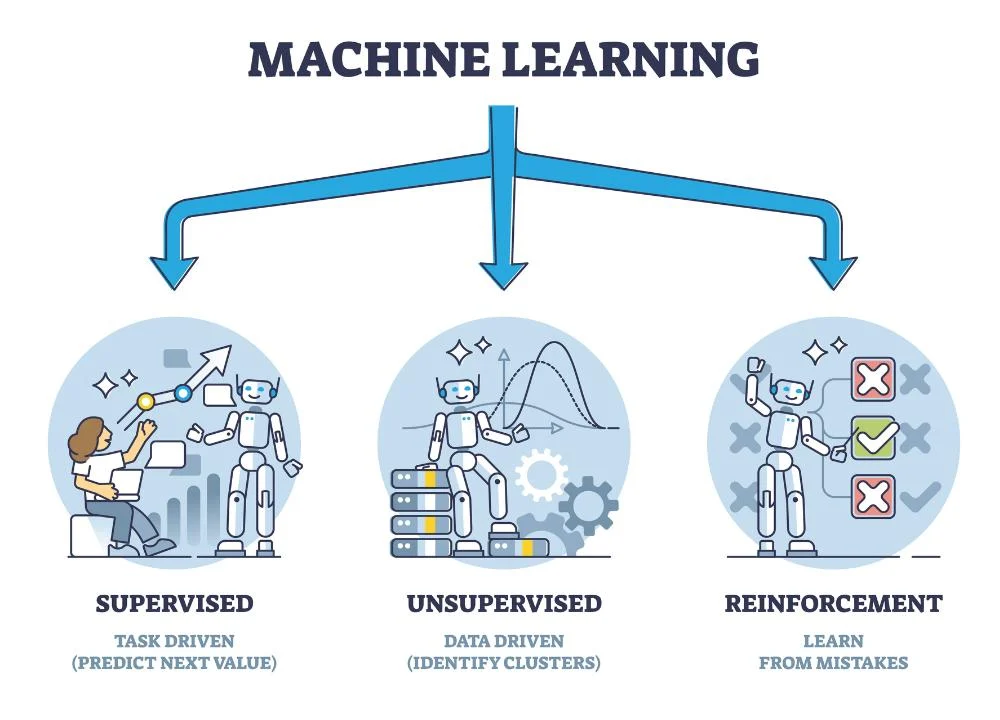MACHINE LEARNING
COURSE ID : ML101
DEPARTMENT : nil
LEVEL : Diploma course
METHOD : online/offline
MACHINE LEARNING
This course provides a comprehensive introduction to machine learning, covering essential algorithms, tools, and techniques used to build and deploy machine learning models. It is suitable for beginners and those looking to deepen their knowledge of machine learning.
Course Content:
Introduction to Machine Learning:
- Overview of machine learning
- Types of machine learning (supervised, unsupervised, reinforcement learning)
- Key concepts and terminology
Python for Machine Learning:
- Introduction to Python programming
- Essential libraries (NumPy, pandas, Matplotlib)
- Data manipulation and visualization
Data Preprocessing:
- Data cleaning and handling missing values
- Feature engineering and selection
- Data normalization and scaling
- Splitting data into training, validation, and test sets
Supervised Learning Algorithms:
- Linear Regression
- Logistic Regression
- Decision Trees and Random Forests
- K-Nearest Neighbors (KNN)
- Support Vector Machines (SVM)
- Model evaluation metrics (accuracy, precision, recall, F1 score)
Unsupervised Learning Algorithms:
- Clustering (K-Means, Hierarchical Clustering, DBSCAN)
- Dimensionality Reduction (PCA, LDA, t-SNE)Anomaly detection
6.Advanced Supervised Learning:
- Ensemble methods (Bagging, Boosting, Stacking)
- Gradient Boosting Machines (XGBoost, LightGBM)
- Neural Networks and Deep Learning basics
7.Deep Learning:
- Introduction to neural networks
- Building neural networks with TensorFlow and Keras
- Convolutional Neural Networks (CNNs) for image recognition
- Recurrent Neural Networks (RNNs) for time series and text data

8.Model Deployment and Serving:
- Exporting and saving models
- Building APIs for model inference using Flask or FastAPI
- Deploying models to cloud platforms (AWS SageMaker, Google AI Platform)
- Monitoring and maintaining deployed models
9.Project Work:
- Hands-on projects and case studies
- End-to-end machine learning project
- Data collection, preprocessing, and exploration
- Model selection, training, and evaluation
- Model deployment and presentation of results
Duration: 12-24 weeks (depending on the intensity and pace of the course)
Prerequisites: Basic understanding of Python programming and introductory knowledge of statistics.
Outcome: By the end of the course, you will have a solid foundation in machine learning, including data preprocessing, algorithm selection, model evaluation, and deployment. You will be able to handle real-world machine learning projects and have a portfolio of projects demonstrating your expertise
